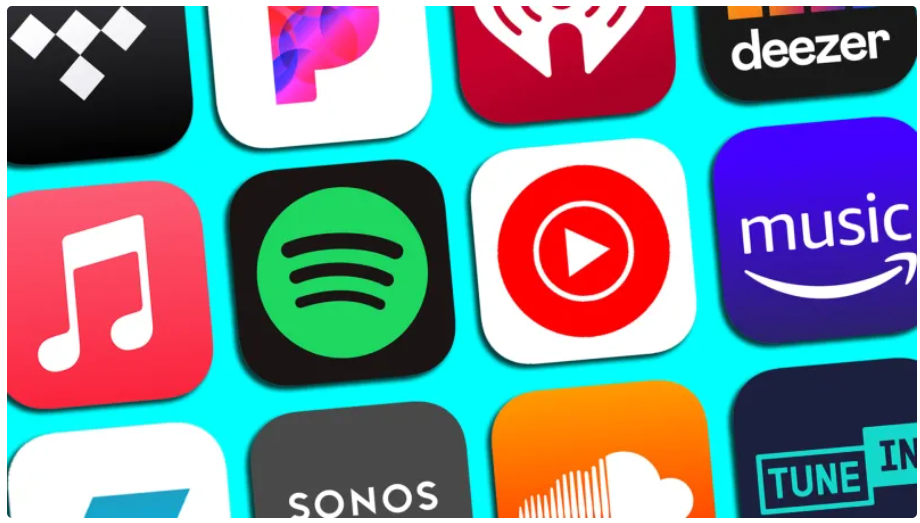The last decade saw the music industry change drastically. With advancements in streaming services such as Spotify, Apple Music, and YouTube, accessibility to music for people has changed dramatically. The revolution created by these platforms made a difference in everything, from how artists share their music to how listeners consume it. But what exactly is the effect of these streaming services on the music business? Let’s explore.
The Rise of Streaming Services
The meteoric rise of streaming services to the top as the number one source of music consumption took no time at all. But gone are the days of buying a physical album or even single-track downloads. Now, several million songs are literally at our fingertips, with only a tap or click needed to get the tunes going. All this began around 2008, when Spotify was launched. It soon became a worldwide phenomenon, with several other such platforms following suit.
These are subscription-model services where any user could stream unlimited music for a monthly fee or for free, ad-supported. This has opened music to everyone more than ever before, really drawing in listeners from every walk of life.
Impact on Artists and Revenue
It’s just that streaming has changed everything. Traditionally, most of an artist’s income used to come from album sales and touring. Streaming started a new revenue model that has been both a blessing and a curse for too many artists.
On the bright side, however, streaming services do offer artists the opportunity to showcase their creativity across the world at large. The independent musician—who earlier found it very difficult to make his or her songs heard—now pushes his music through to millions of people. This has paved the way for the discovery of a host of new talent that might never have found an opportunity otherwise.
The downside, however, is that streaming revenue is usually very low. For example, artists get paid per stream, and the amount is normally very minimal. It usually takes thousands, if not millions, of streams to make decent revenue. Because of this, many musicians turn to live performances and selling merchandise to increase their income.
The Changing Role of Record Labels
Record labels have had a long history of being one of the more major aspects of the music industry, working to produce, distribute, and market the work of artists. That has been shifted today with streaming, where many of those roles blur significantly. Some have begun to skip record labels, with artists coming to have the power of distribution directly to their listeners.
This shift has brought about independent artists who manage their careers without the backing of a label. A lot of such artists use streaming and social media to create their fanbase, often finding success on their own terms. While record labels preserved their power in the industry, they are now forced to adapt to the new landscape, where traditional roles are challenged.
Listener Experience and Music Discovery
Streaming services have also changed the way music is consumed by listeners. They make use of algorithms that are able to personalize recommendations based on a user’s preference list, so one can easily be exposed to new music. Personal playlists, like Spotify’s “Discover Weekly” or Apple Music’s “For You,” are on the rise as ways through which users can be exposed to new genres and artists.
Furthermore, streaming offered freedom of movement to the people. Whether commuting, training in the gym, or simply relaxing at home, it has been possible to be connected to one’s favorite tracks at every moment. This is one of the reasons why streaming services have gained such great popularity.
The negatives of the shift do exist, however. It sometimes gets overwhelming to go through so much music as to concentrate on one artist or a single album. Another negative impact is that attention has diverted to singles rather than albums, changing the way most people used to consume them and opting to hear pre-formed playlists rather than full albums.
The Future of the Music Industry
While the impact of streaming on the music business is undeniable, what does the future hold? Indeed, how one accesses and consumes music changes with every step forward in technology. But even as that happens, streaming services are already developing more sophisticated offerings—bbetter sound quality and better music discovery tools.
The future might also see artists looking toward newer technologies, such as blockchain technology and NFTs, to find new ways of monetizing their music. These are innovations that can offer alternative revenue streams for artists by putting them in charge of their works.
The record labels, too, will need further evolution. As more artists go independent, labels may have to offer new kinds of services in order to remain relevant. One way could be toward more artist development, branding, and marketing and less concentration on mere distribution.
The future is all set to bring on board even more personalized and immersive music experiences for listeners. These interesting developments include virtual reality concerts, interactive music videos, and AI-driven music creation.Probably, this kind of development is going to make music more accessible and engaging than ever before.
The bottom Line
The effect that streaming services have had on the music business is one of basic change. From new revenue models to reshaping how we discover and engage with music, these platforms have made a deep impact. While there are still many challenges to be overcome, the outlook for the music industry is bright and full of endless possibilities for artists, record labels, and listeners alike.
Music streaming services are undoubtedly going to play a lead role in setting up the future of the music industry. The impact is sure to increase, and it is going to be associated with a given number of opportunities and challenges. One thing, however, can definitely be said for sure: the way we experience music is never going to be the same again.



